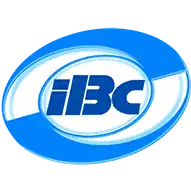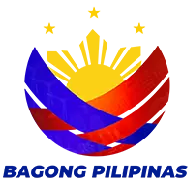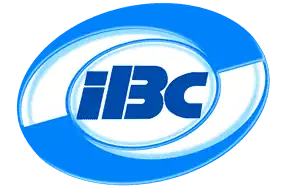The story of IBC perhaps occupies a chapter or two in the history of Philippine television itself. It is a retrospective of its golden age.
Once upon a time, in late 1959 to be exact, a group of businessmen led by Dick Baldwin decided to venture into the then black-and-white world of Philippine television. They established Inter-Island Broadcasting Corporation (IBC) in October 1959 and put up its TV
station, dzTV Channel 13, which began its broadcasts on March 1, 1960. The Filipino living room was about to change. The rest is history in living color.
station, dzTV Channel 13, which began its broadcasts on March 1, 1960. The Filipino living room was about to change. The rest is history in living color.
The spanking new IBC Channel 13 started off by showing mostly canned shows from Hollywood. The “Twilight Zone”, “Have Gun”, “Perry Mason”, “Wagon Train”, “Rawhide” would soon rule the airwaves. Tarzan was waiting in the wings.
By 1962, there were six TV channels in the country: 3, 5, 7, 9, 11, and 13. Into this field came the legendary Andres Soriano. His biggest coup was buying IBC-13 that year from Baldwin and the company.
Soriano asked Henry Canoy, another visionary and owner of Radio Mindanao Network to head his tri-media conglomerate’s broadcast empire together with the Philippine Herald which he bought from the Madrigal family.
Immediately, Canoy reconfigured IBC’s programming along the lines of DZHP’s “Sound of the City”, boasting sharp news reporting, an all-night talk show, and a capsule studio – the equivalent of today’s outside broadcast (OB) van – from which it could air live news as it happened.
The success of the IBC-RMN-Herald tri-media conglomerate was cut short on September 21, 1972, when President Ferdinand E. Marcos declared martial law.
One of Marcos’ first acts was to issue Letter of Instruction No. 1, ordering all radio and TV networks closed. These networks, including IBC-13, were eventually allowed to reopen.
IBC-13 soon became a refuge for ABS-CBN programming veterans. In late 1973, most programs mounted by former ABS-CBN producers on Channel 7 transferred to IBC-13, resulting in the renaissance of IBC-13.
In 1975, the Marcos government enforced the constitutional requirement for media to be 100% Filipino-owned. This barred the Sorianos, who were US citizens, from holding any interest in either RMN or IBC. Furthermore, they were told that the owner of a newspaper could not likewise own a radio or TV station, and vice versa. This development caused the Sorianos to sell IBC to Roberto S. Benedicto. On 01 February 1975, Channel 13 Manila reopened as the Intercontinental Broadcasting Corporation (IBC) under the aegis of the Benedicto Group of Companies.
In 1977, IBC moved to its present home in Broadcast City in Capitol Hills, Quezon City. IBC had a nationwide reach and continued to be one of the country’s most-viewed TV networks.
IBC was well-entrenched in comedy with hits like “Iskul Bukol”, “Eh Kasi Babae”, “Chicks to Chicks”, and “Going Bananas”, as well as variety shows like “The Sharon Cuneta Show.” On the foundation of programming targeted toward the C-D-E market, IBC reached what would be the pinnacle of its success.
IBC still owns a rich collection of these audiovisual materials and master-edited programs.
On March 2, 1986, shortly after the EDSA People Power Revolution, all stocks and assets of IBC were placed under the Presidential Commission on Good Government (PCGG). A board of administrators was later created to run the Network.
And just as IBC became a refuge for programs produced by former ABS-CBN personnel after Martial Law, a reversal of fortune occurred after 1986. The reopening of ABS-CBN started the exodus of hit shows from IBC.
In 1992, IBC became a 100% government-recovered asset by virtue of a Compromise Agreement entered into between the PCGG and Roberto S. Benedicto. However, the network was to be run, as it continues to be run, as a private corporation, subsisting on its own revenues.
Since November 2021, its Manila Central transmitter broadcasts have been emanating from the 3ABN Transmitter Facility in Bgy. Sta. Cruz, Antipolo, Rizal.
IBC is involved in the production and broadcast of television programs, in particular of news, public affairs, and public service programs in accord with its Legislative franchise and with the Certificate of Public Convenience granted by the National Telecommunications Commission.
IBC undertook a critical contribution to the national government’s comprehensive response to the COVID-19 pandemic via the nationwide broadcast of DepEd TV – 12 hours a day, six days a week – from October 2020 to June 2022, ensuring uninterrupted education for the country’s 28 million grade school and high school learners from K-12.
For this critical public service rendered to the country, IBC-13 was granted a subsidy of PhP185M by the national government for emergency procurement of transmitters, allied antenna systems, and vital broadcast equipment.
The improved overall signal has already drawn more viewers to the channel.
With a new mandate from Malacañang, IBC is once again going into the production of an increasing number of public affairs programs, with the successive launches of Bagong Pilipinas – PBBM: Lingkod ng Bayan, Ito Ang Kongreso, and Cabinet @ Work in the last two quarters of 2023.
In 2024, the programs Ang Senado ng Pilipinas, Handa Sakuna, and Dok True Ba? began their maiden telecasts, while in the pipeline now are SAYAanista, Tandem nina Julius at Cecile, Legally Speaking, ResTOURant, WIKApedia, and Forever Home
Over the years, IBC has made a practice of building both monetary and non-monetary partnerships with various organizations, particularly government and NGO research and development institutions.
All of these form part of a network of cooperation that can be relied on, not only in sustaining television programs aimed ultimately at improving the lives of the Filipino viewing public, but also in reaching out to niche and the less privileged sectors in society through specific audience-focused broadcast and social media content, and through direct-to-community service activities such as medical missions and disaster relief operations.
IBC’s programs are backed in terms of broadcast and production infrastructure by its entire radio and television network, as well as the social media platforms of IBC-13.
Vision
To be the Filipino educational channel working toward a literate and globally competitive nation.
Mission
To provide the Filipino people, the youth in particular, a holistic learning platform focused on excellent educational content, culture and sports and other education relevant topics.
Core Values
God-centered
Love for country and fellowmen
Family oriented
Zeal for service
Professional integrity
Efficiency
Positivity
Love for country and fellowmen
Family oriented
Zeal for service
Professional integrity
Efficiency
Positivity





